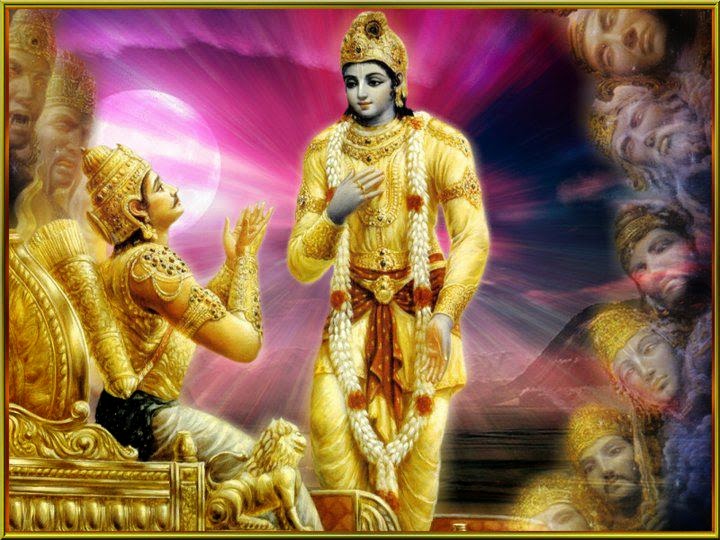The Spiritual Import of the Mahabharata and the Bhagavadgita : Ch-8. Part-4.
8. In Harmony with the Whole Universe :
Part-4.
So even among those who are really, honestly striving, many may have committed the mistake of not being comprehensive in their approach. Despite their sincerity and enthusiasm, a little error might have crept in. They may have jumped too far, etc. Endless are the reasons that can be given. The reason for this difficulty may be due to some cause from a previous birth or to some other equally obscure reason. Various reasons are there because of these complicated atmospheres in which one finds oneself. So even among the sincerely aspiring souls for perfection, very few will really succeed.
Yatatam api siddhanam kascin mam vetti tattvatah:
God can be known in reality and truth only by very few. We have only concocted gods in our minds—we have a Hindu God, a Christian God, a Hebrew God, and so on. We have created God; we have manufactured God for our own purposes. These ‘Gods’ can help us to some extent, but ultimately they will leave us in the lurch because they have been manufactured by us; they are our instruments, an effect produced by us. So while our instruments are helpful to us up to a certain limit and measure, they cannot take us to the ultimate aspired goal. In reality, very few can know what to do.
With this very interesting and necessary introductory remark, the great Master proceeds to expound His thesis in the seventh chapter, where we are lifted up from the individual realm of the first six chapters to the universal level of creation and the relationship of the creation to the Creator. We have always a necessity to admit the existence of a Creator, on account of our perceiving such a thing called creation. The Teacher of the Bhagavadgita is a tremendous psychologist.
Even a hundred Socrates put together cannot equal this Teacher, so clever in understanding the difficulties of the teaching and the thought of the individual that receives them. The best teacher is that individual or person who starts from the level of the student, and not from his own standpoint. When the teacher speaks, he does not speak what he knows—he speaks what the student needs. That is the proper teacher. Otherwise he vomits what he knows and does not help the students. So the great Teacher of the Bhagavadgita is a master of psychology, and He knows what is to be told at a particular given moment of time. He takes the student step by step, by the hand, from the level of the student’s understanding, and not from the topmost level of the teacher’s experience or realisation.
Swami Keishnananda
To be continued ...





Comments